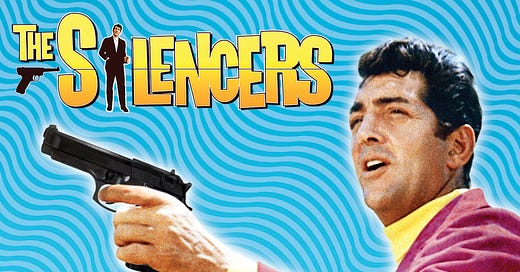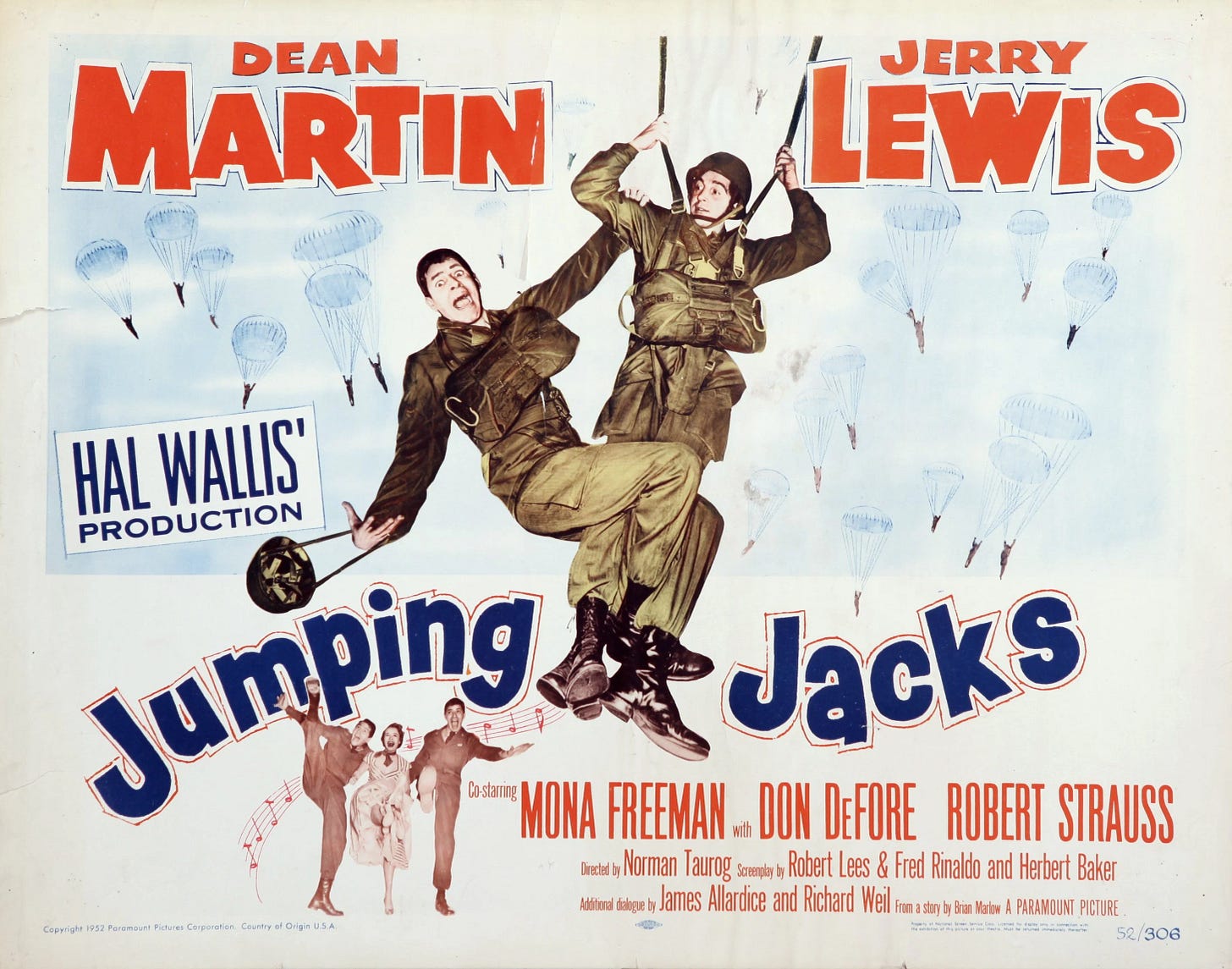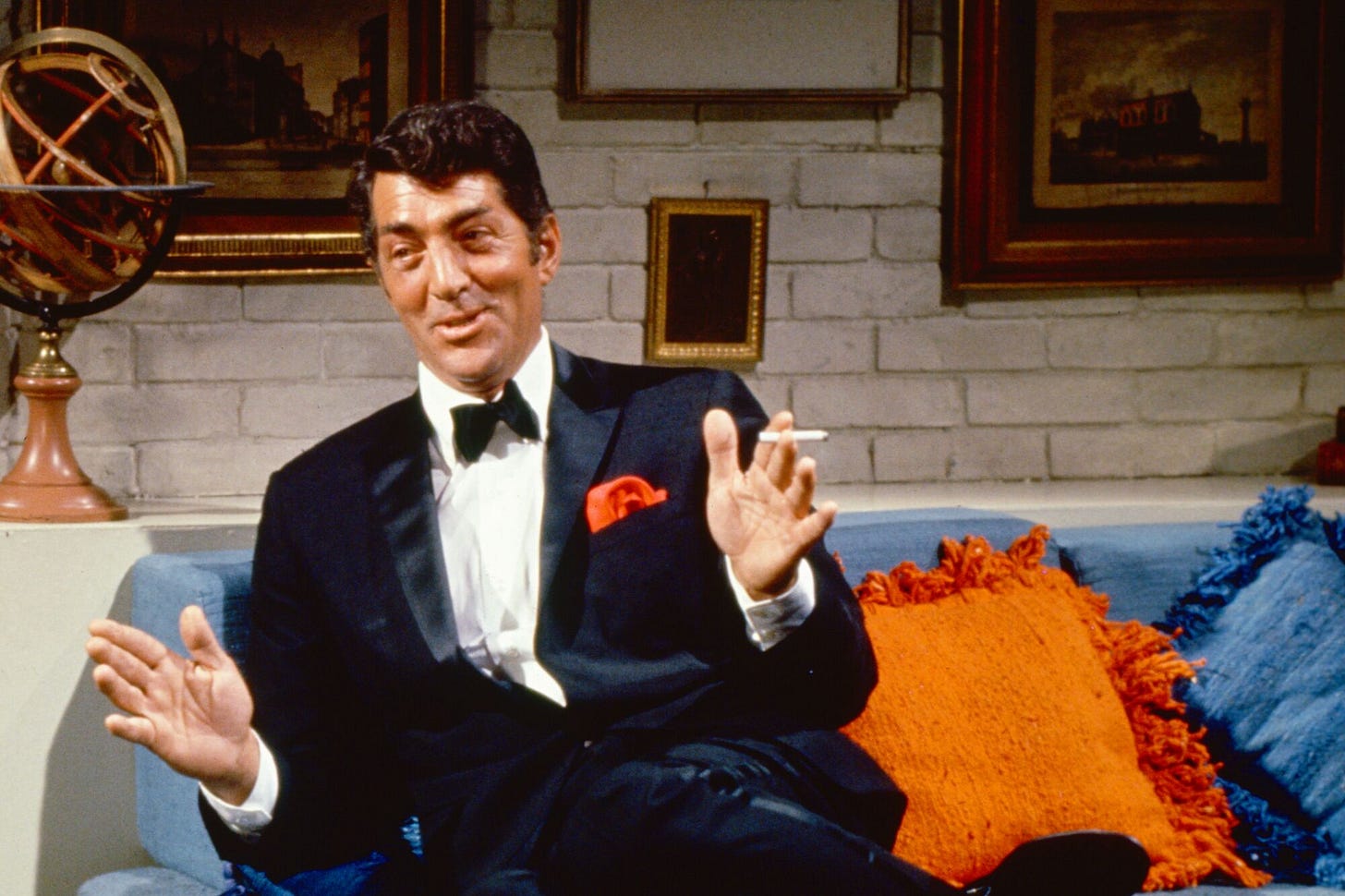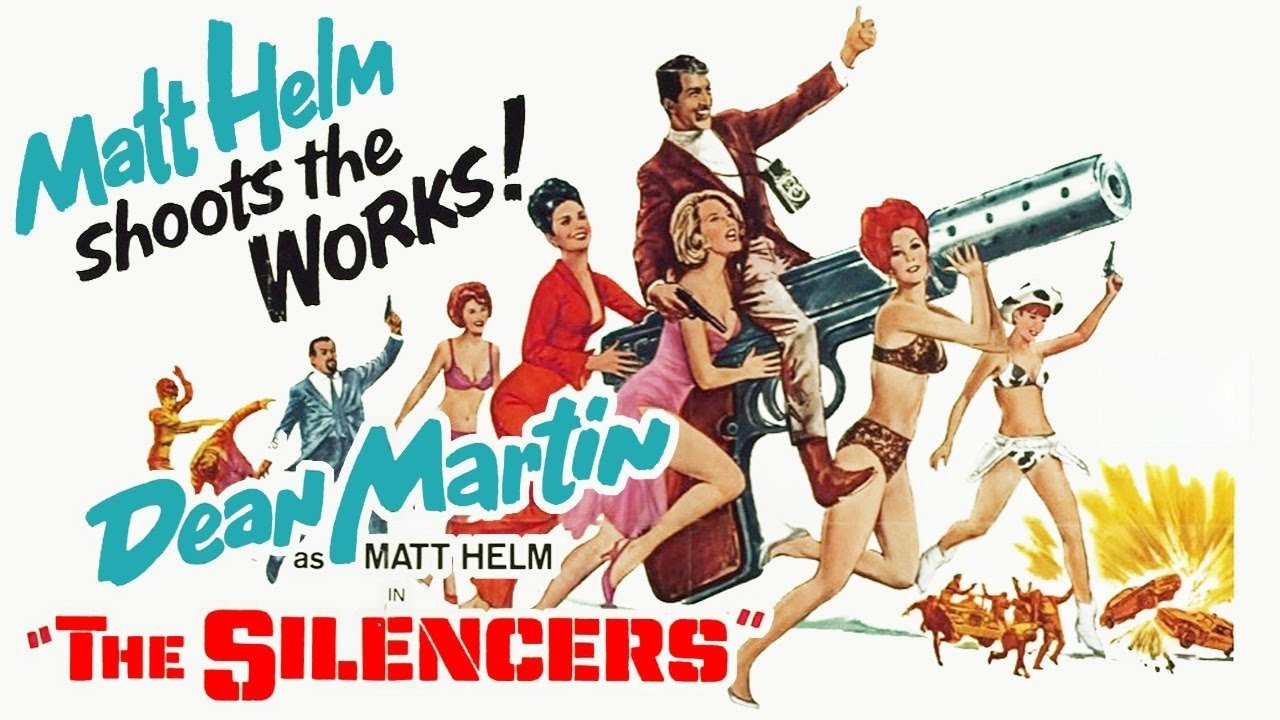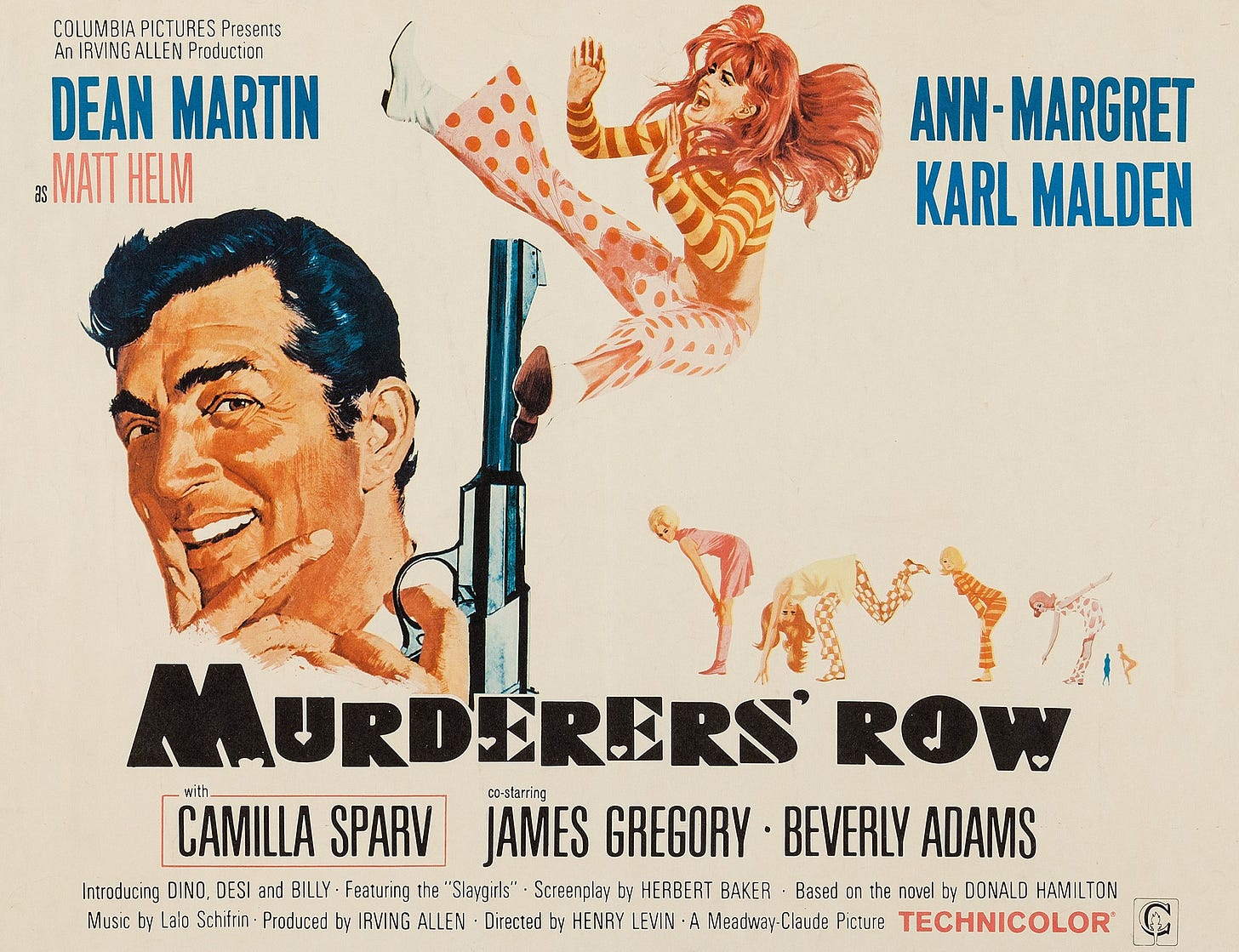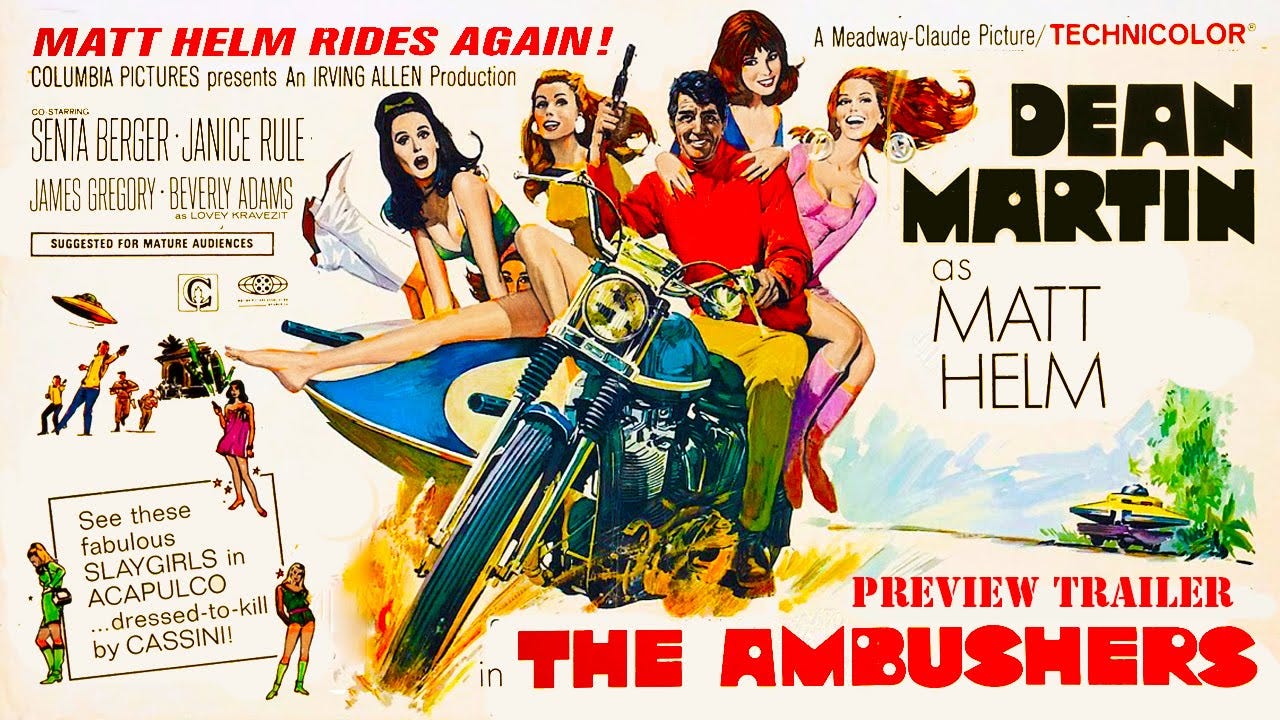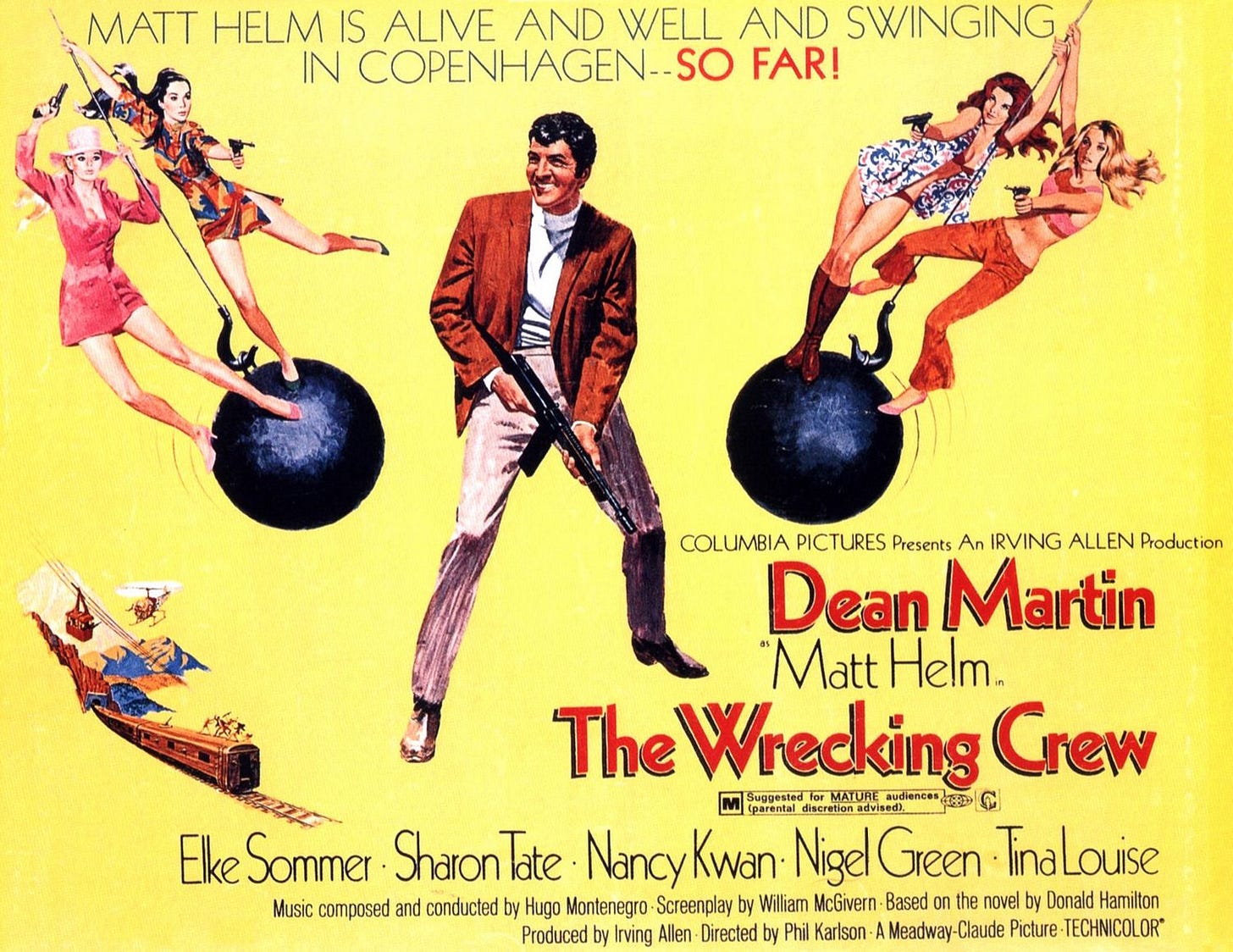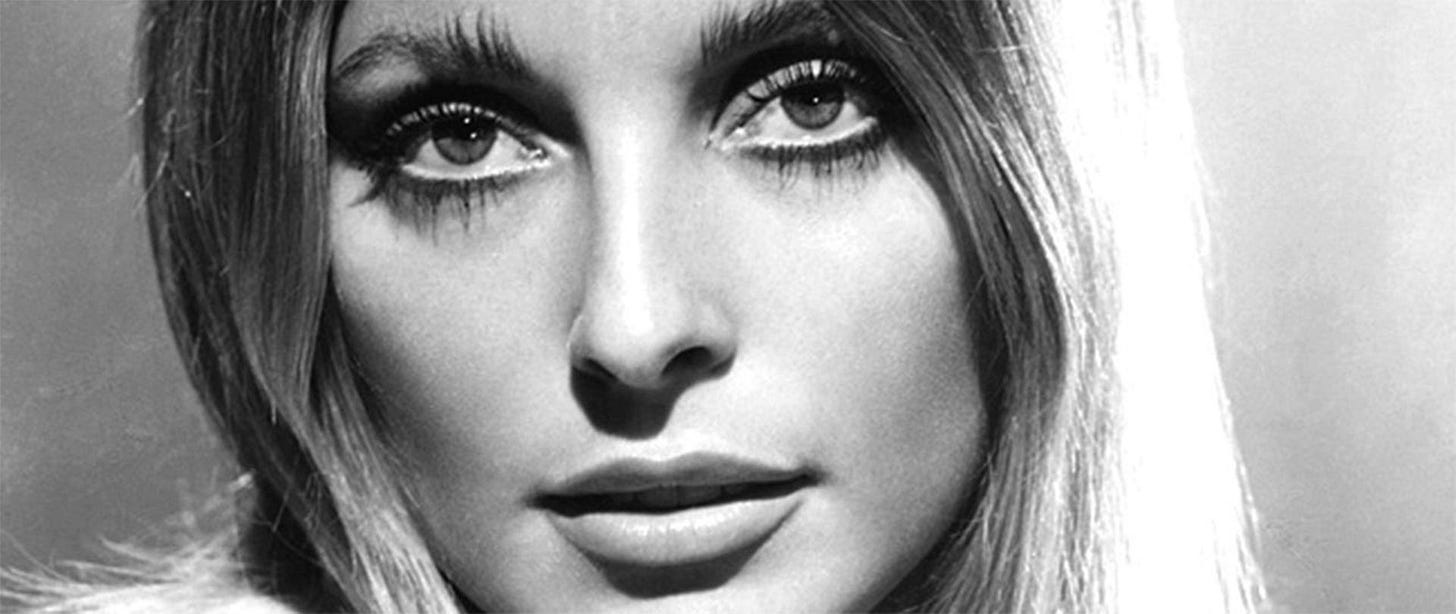The guilty pleasure of the Matt Helm series
In the mid-sixties Dean Martin decided to become Matt Helm, super spy. The films were spoofing James Bond from start to finish - and three of four were written by the most unusual Herbert Baker.
I first came across Dean Martin courtesy of my parents’ records. Later I saw him on The Dean Martin Show, then discovered his films and Rat Pack years. What was not to love? As a kid I sang his songs, as a youngster I wanted to be him, the King of Cool, suave, a ladies-man and funny, too. He could sing, he could dance, he could act (and Rio Bravo’s all the proof any doubter needs to confirm that he was a dramatic actor, too) - he was a true triple threat.
It just might be that I’ve seen all of his films and most of his TV appearances from the uproariously funny Colgate Hour with Jerry Lewis to the thoroughly laid-back Dean Martin Show. Even today, he’s my King of Cool (and yes, one of my sons’ middle name is - of course it is - Dean).
Recently I rewatched Dean Martin’s Matt Helm series - and went down the rabbit hole to find out more about the films and, in particular, the writer of three of the four films, Herbert Baker (seen below in one of the few pictures I was able to find).
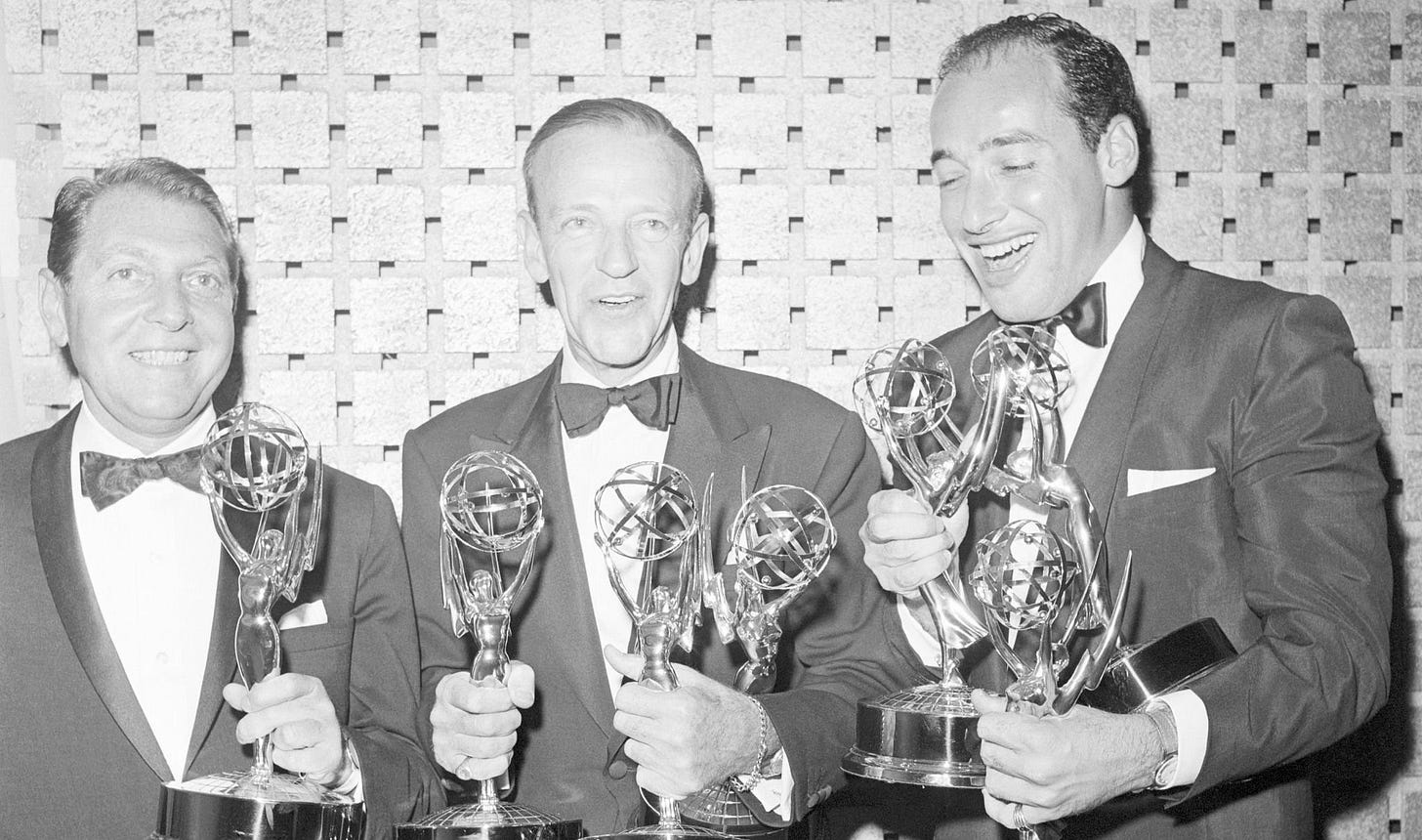
The Matt Helm spy-spoofs were as innocent as were Dino’s many films with Jerry Lewis. They were, truly, lazy filmmaking - and yet they continue to be enjoyable to me because of that inimitable Dean Martin charm. In the meantime, I’ve learned more about both the films and screenwriter Herbert Baker.
Baker, of whom I had not heard before, was a most unusual sort of screenwriter, as he was also a composer and songwriter. He wrote for the Danny Kaye Show radio program in 1945 (here’s a playlist on YouTube - enjoy jumping into the past!) and from there he easily met all the right people, both in film and television. By 1948 he was already successfully writing screenplays and soon his first collaborations with Dean Martin and Jerry Lewis, Jumping Jacks (1952) and Scared Stiff (1953) hit the silver screen.
He wrote for television in between, but he can’t have had a lot of time for it - 1955 already brought the Martin & Lewis hit Artists and Models and Elvis got the Baker treatment with Loving you (1957) and King Creole (1958). Baker continued to be incredibly prolific and his IMDB list looks like a veritable Who’s Who of stars - what most of them had in common, was music.
In 1965 Baker was writing for The Dean Martin Show, at a time when Dino agreed to star in and co-produce a Matt Helm film series.
The Matt Helm movies were spy-spoofs at a time long before Austin Powers, but just perfectly in the time when Get Smart hit the small screens and when James Coburn, as uber-spy Derek Flint took himself quite a bit more seriously than Dean Martin/Matt Helm ever would. In the original novels by Donald Hamilton, Matt Helm was actually straight-up, hard-hitting spy material. Essentially, in the films, all that remained of the novels were the hero’s name and some of the novels’ titles.
As mentioned, harmless fun marks these films. But, of course, a great deal of what is seen and done is packed with sexual inuendo, and language, behaviors, objectification are just a teensy bit (to put it mildly) out of touch with today’s sensibilities. And what was said and done wasn’t exactly clever - ‘on the nose’ seems to have been the rule. Still, they didn’t try to be anything other than what they were aiming for, and Dino’s charm carried it all effortlessly and beautifully for me.
The Silencers (1966), was pure silly fun, with Dean Martin playfully poking fun at just about everything and everyone (including himself, of course). And Stella Stevens, as the ultimate disaster klutz, was essentially to Dean Martin’s straight man what Jerry Lewis had been to him in many of their films. In the films, Matt Helm occasionally ruminates with an inner singing voice - those bits were written by Herbert Baker - who actually also wrote the final version of the screenplay (but was not given credit for it for some reason).
Now here’s a bit of trivia for you: Apparently - The Silencers was the first film with a post-credit scene (something entirely common since the advent of the Marvel Universe). It’s a scene with Dean Martin in a round bed with lots of scantily clad women - we’re shown that a next Matt Helm movie called “Murderers’ Row” is coming next - then Dean Martin kissing the women to his right and left and finally ruffles his hair, lowers his head and sighs, ‘Oh, my God.”
Murderer’s Row (1966) was rushed into cinemas less than a year after The Silencers - and was quite successful. And this time around, Herbert Baker was given full credit for his screenplay. I’ve no doubt that some of the reason for the film’s success came with Ann-Margret. At the time was red-hot, fresh off star-making turns in Viva Las Vegas (1964) and The Cincinatti Kid (1965).
The Ambushers (1967) certainly feels like the laziest in a series of already exceedingly laid-back lazy movies. Apparently, they just used what was around, effects were made on the cheap and a flying saucer needed for the film was found on the studio lot as it had been used for a Star Trek episode! And once again, Herbert Baker wrote the script.
For The Wrecking Crew (1968), they clearly decided to up their game again. Bruce Lee was hired as martial arts adviser for the film - and you can tell that a bit of work went into the fight sequences. Not surprisingly, Dino didn’t do his own stunts - Bruce Lee apparently thought him clumsy and lazy anyway - a stunt double did the work.
Sharon Tate played Matt Helm’s klutzy ally in the film. While the movie was still playing in theaters, in August of 1969, she was murdered by a few of Charles Manson’s followers.
Now, some say the Matt Helm series ended because it had simply run out of steam - but I tend to give credence to the other version, namely that the murder of Sharon Tate, friend and co-star, upset Dean Martin to the point that he ended the Matt Helm series. The end of “The Wrecking Crew” does tease a 5th film called “The Ravagers,” - but, for either of those aforementioned reasons, that next film never happened.
Herbert Baker had nothing to do with the fourth film, and he spent the next ten years writing mostly for television once more. And then he added one more to his long list of films, squarely with music at the center once more, with Neil Diamond’s The Jazz Singer. While Baker delivered mountains of script pages over the course of his life, from everything I’ve seen it appears that he was, first and foremost, a musician. He wrote music, he taught music and one of his mentees, Jazz sax player Azar Lawrence said that Baker had been “one of the greatest pianists who ever lived.”
Well, I wouldn’t know about that - but I do know about many of his films and much of his television work. He’s given me endless of hours entertainment that’s always been full of warmth and humor - I’d say, a life exceedingly lived!

